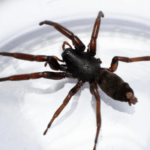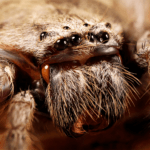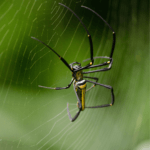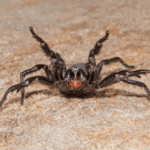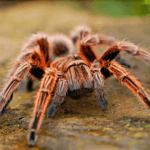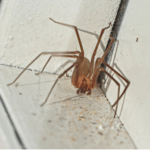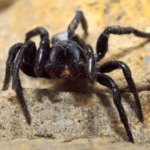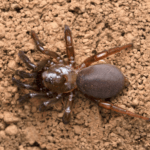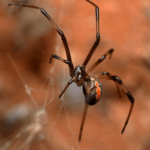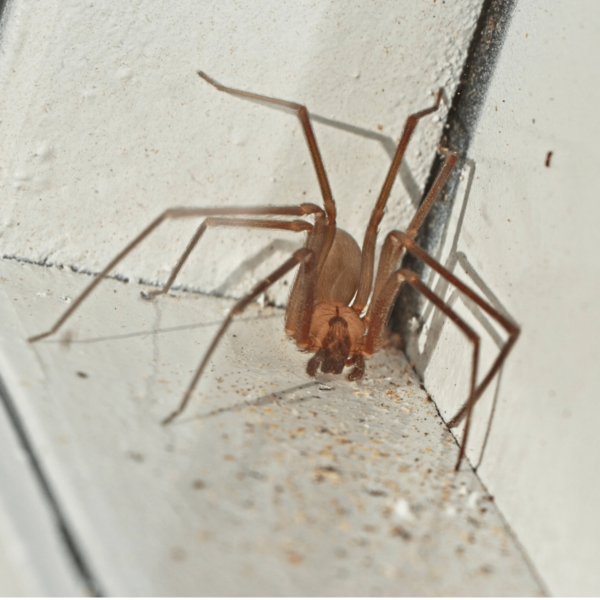
Delving into the World of Recluse Spiders: Understanding the Misconceptions
In the realm of arachnids, recluse spiders stand out as creatures shrouded in fear and misconceptions. Often associated with painful bites and even death, these spiders have been ostracized and misunderstood. However, beyond their intimidating reputation lies a fascinating biology and a gentle nature that deserves a closer look.
Distinguishing Features: A Spider with a Unique Ventral Marking
Recluse spiders are easily recognizable by their unique ventral marking, a violin-shaped pattern on the underside of their cephalothorax. Their bodies typically range from 6 to 20 millimeters in length, with females generally larger than males. Their colors vary widely, from light brown to dark gray, with some species exhibiting a mottled pattern.
Habitat and Behavior: Nocturnal Hunters and Web Weavers
Recluse spiders prefer undisturbed habitats, such as dark basements, attics, crawl spaces, and woodpiles. They are nocturnal creatures, emerging at night to spin their irregular webs and hunt for prey. Their webs are typically constructed in secluded areas, providing them with a safe haven from predators and allowing them to ambush unsuspecting insects.
Recluse spiders are opportunistic hunters, waiting patiently in their webs for insects to become entangled. Once trapped, the spider swiftly emerges, subduing its prey with a venomous bite. Their diet consists mainly of flies, crickets, and other small insects, helping to control their populations in the environment.
Venom and Bites: Understanding the Potential Effects
Recluse spiders possess venom that is neurotoxic, meaning it affects the nervous system. While their venom is not as potent as that of some other spiders, it can still cause unpleasant and sometimes serious symptoms in humans if bitten.
Recluse spider bites typically result in localized pain, redness, and swelling at the bite site. In some cases, more severe symptoms such as nausea, vomiting, and muscle cramps may occur. However, fatalities from recluse spider bites are extremely rare.
Misconceptions and Research: Dispelling Myths
Recluse spiders have often been associated with necrotizing arachnidism, a condition that leads to tissue death. However, recent research has cast doubt on this association, suggesting that recluse spider bites are not directly responsible for causing necrotizing arachnidism.
It is now believed that other factors, such as pre-existing skin conditions, infections, and individual susceptibility, may play a more significant role in causing necrotizing arachnidism.
Respecting Recluse Spiders: Coexistence and Conservation
Recluse spiders, like many other creatures, play a valuable role in the ecosystem. They help control populations of other insects, including pests, and contribute to the delicate balance of nature.
While their presence can sometimes be a concern, especially in homes or gardens with young children or pets, it is important to remember that recluse spiders are not aggressive and will only bite if provoked or threatened. By taking simple precautions, such as wearing gloves when gardening or avoiding disturbing their webs, we can coexist harmoniously with these gentle spiders.
Our Pest Control Services: A Commitment to Safe and Environmentally Friendly Solutions
While recluse spiders generally pose no serious threat to humans, their presence can sometimes be a concern, particularly in homes or businesses where their webs may be encountered frequently. At our pest control company, we are committed to providing safe, effective, and environmentally responsible pest control services that protect both our customers and the environment.
Our experienced technicians are trained to identify and handle recluse spiders and provide guidance on preventing future infestations. We use only the latest, EPA-approved products and techniques to ensure the safety of our customers, their families, and their pets.
If you are concerned about recluse spiders or other pests in your home or business, please contact us for a free consultation. We will be happy to provide you with information about our services and answer any questions you may have.

